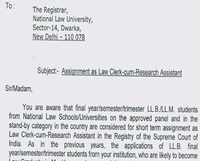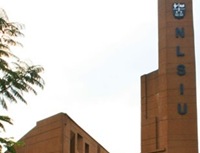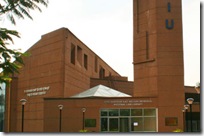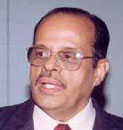national law universities (NLU)
TN NLS: The Rs 100 crore Tamil Nadu National Law School Srirangam was yesterday inaugurated and has only five students from Tamil Nadu in its first batch of 71 CLAT-admitted students [News Today/TNNLS Website]
Black gold: 16 files containing details of illegitimate allocations in the Coal scam that mysteriously went missing in the Coal ministry until yesterday, have resurfaced, just as mysteriously [TOI]
SC protects whistleblowers under the Prevention of Corruption Act, ruling that leakers’ identities must never be revealed to the accused [TOI]
The Judicial Appointments Bill is one step closer to wiping out the judicial collegium system, as the Union Cabinet yesterday cleared the proposal [Zee News]
Admin Tribunals Act amendment cements eligibility of Central Administrative Tribunal (CAT) chairmanship to current or ex-higher judiciary members. Amendment also creates power to transfer of cases between tribunals, aimed at speedy disposal [Zee News]
46 death row convicts await gallows at the only Karnataka prison that literally has a gallows facility. 12 were commuted to a life term including a female serial killer dubbed Cyanide Mallika by the press [TOI]
The Damodaram Sanjivayya National Law University (DSNLU) Vizag in Vishakhapatnam is Rs 40 crore behind on the minimum funds required to set up its own campus. It is currently operating from a 20,000 square feet rented building for its 460 students, who are housed in private hostels across Vizag without any transport facilities, reported the Times of India last week.
These are the third rented premises from which the university is operating but unless it manages to get its infrastructure in place it will not receive central funding.
The authorities have requested the state government to release Rs 20 crore by the end of this academic year, however out of the Rs 10 crore sanctioned to it last year the state had released only Rs 5 crore.
 NLU Delhi added five full time faculty, two visiting professors and three research associates to its teaching staff this academic year taking its total faculty strength to 44, while continuing the drive to recruit young faculty by offering salaries more attractive to foreign university LLM holders.
NLU Delhi added five full time faculty, two visiting professors and three research associates to its teaching staff this academic year taking its total faculty strength to 44, while continuing the drive to recruit young faculty by offering salaries more attractive to foreign university LLM holders.
A Delhi high court bench headed by Justice Pradeep Nandrajog said “99% of the existing NGOs are fraud and simply moneymaking devices. Only one out of every hundred NGOs serve the purpose they are set up for” [Hindustan Times]
Sonepat in Haryana, which is also home to Jindal Global Law School (JGLS), is to get its own national law school by 2015-16, funded by Rs 190 crore [PTI]
10 UK law firms amongst 500 most recognised UK business brands. How would Indian firms fare? [Legal Week]
Why is the government not willing to include marital rape in the new anti-rape Bill? Live chat with Luthra senior associate Mihira Sood [IBN Live]
PIL filed in Delhi HC against Facebook India, Google India about alleged compliance failure in tax and RBI regulation, data security, and user-agreement [DNA India]
Maharashtra NLU in limbo after as ministers fight over location: Aurangabad campus in addition to Mumbai? [TOI]
CBI calls on two Italian law firms to help it figure out chopper graft case [PTI]
 Exclusive: The High Court (HC) of Delhi today said that the Supreme Court’s public information officer (PIO) could not refuse to disclose the SC’s judicial clerks’ selection procedure under a Right to Information (RTI) request because there was a pending writ that challenged the same procedure.
Exclusive: The High Court (HC) of Delhi today said that the Supreme Court’s public information officer (PIO) could not refuse to disclose the SC’s judicial clerks’ selection procedure under a Right to Information (RTI) request because there was a pending writ that challenged the same procedure.
 Exclusive: NLSIU Bangalore has launched a host of new construction in its academic block, hostels, and basketball courts while NLU Delhi has decided to renegotiate the pay of its foreign-educated faculty, after both law schools were sanctioned close to Rs 8 crore by the University Grants Commission (UGC) in November 2012.
Exclusive: NLSIU Bangalore has launched a host of new construction in its academic block, hostels, and basketball courts while NLU Delhi has decided to renegotiate the pay of its foreign-educated faculty, after both law schools were sanctioned close to Rs 8 crore by the University Grants Commission (UGC) in November 2012.
A similar grant was also extended by the UGC to the other 12 national law schools (NLU) late last year under the eleventh five-year plan, after their vice chancellors (VC) lobbied aggressively against excluding the law schools from central funding.
 In today’s edition of Mint: The National Law School of India University (NLSIU) Bangalore may face a funding gap of Rs. 2 crore this fiscal year after the Karnataka state government cut its grant by 50% from Rs. 4 crore last year. NLSIU was established in 1987 as the first of India’s flagship national law universities (NLUs).
In today’s edition of Mint: The National Law School of India University (NLSIU) Bangalore may face a funding gap of Rs. 2 crore this fiscal year after the Karnataka state government cut its grant by 50% from Rs. 4 crore last year. NLSIU was established in 1987 as the first of India’s flagship national law universities (NLUs).
The IDIA (Increasing Diversity by Increasing Access to Legal Education) project, conceptualised and spearheaded by Prof. Shamnad Basheer (IPR Chair Professor, NUJS) aims to address the concern of NLUs becoming elitist. IDIA endeavours to help students from rural areas, poor backgrounds, vernancular medium schools etc. make it to the top NLUs.
That NLUs are becoming elitist was previously an anecdotal speculation. However, results coming from a survey conducted with 87 first year students (batch of 2014) at NUJS prove it to be a fact:
ü 97.7% of the students studied in English medium schools.
ü Schools of 88.51% students were in an urban area.
ü 82.76% of the students took coaching for CLAT.
ü Only 4.6% of the students have family incomes less than 1 lac rupees pa.
The rural-urban/rich-poor divide becomes clearer still: there are no students (0 %) from Haryana, Himachal Pradesh, J & K or even Punjab while 2% of the students are from Chandigarh alone. Nine students (10.34%) are from Delhi (NCT).
Now LST, a leading coaching institution has atleast 4 centers in Delhi and 2 centers in Chandigarh. It is not difficult to see what makes students in cities tick. There is no LST center in Himachal or J & K.
That CLAT is in itself is a pro elititist/english-educated entrance exam is shown in this superlative piece by Prof. Basheer. He argues that a logic reasoning based CLAT with less emphasis on English language, static GK etc. will not only result in better law students but will also ensure a level playing field for all students.
Here is the proverbial last straw: 10.34% of the students are from Maharashtra (a very rich/urban state) while none of the students are from Chattisgarh or Orrisa (poor states) [1]. The reasons are not hard to find: the CLAT form at 2500 bucks is expensive, CLAT coaching at 25000 bucks is expensive and the fees at NLUs is very pricey too.
Another useful insight: A large number of students are from places where the top NLUs are situated. Their presence seems to have contributed towards increased level of awareness. The division is: Karnatka (NLSIU) 9.2%, Andhra Pradesh (NALSAR) 5.75%, West Bengal (NUJS) 16.09% and Rajasthan (NLUJ) 4.6%.
Finally in rural/poor regions of our country, there is a deplorable lack of awareness about law as a career option; NLUs or CLAT are an unheard commodity. Pilot projects in Pelling (Sikkim), Tumkur (Karnatka) and Shanti Bhavan (Tamil Nadu) prove this empirically.
The IDIA project wants to change this around.
Awareness programs about Law-CLAT-NLUs; identification of students with an aptitude for law and finally establishing tie-ups with coaching institutions to train students free of cost are some of the steps IDIA takes. To those who make it to the top NLUs scholarships, stipends and mentoring too will be provided.
We believe that the top-notch education and career opportunities the students will get in NLUs shall ensure grass-root human resource development. It is hoped that once successful the students will invest back in the communities they represent. Also our law schools will nurture more diverse ideas and research.
[1] However, 5.75% of the students are from Bihar, 3.45% from Jharkhand. Students from this part of the country have done well in other competitive exams too (IIT-JEE, Civil Services). An interesting case study?
Part II- IDIA: Helping Potted Frogs (Kup Manduka) Thrive in Seas
KupManduka is the story of ‘the frog in a well/pot’. The frog jumps from wall to wall of the well/pot and feels proud. However, when he finds itself in the sea, he comes to know that frogs in the sea jump much further. He is crestfallen.
I take out the element of pride. My frog can jump from one wall to another because of the constrained environment he is in. His vision is limited by the walls and so are his jumps. The body achieves what the mind can conceive. You cannot hit a target which you cannot see.
When my frog is thrown into a sea, he finds himself lost. With no one to guide him, he is unable to find his way. The harsh environment and the cut lung competition stifles him. However, when a mentor guides him, the frog thrives.
THE FROG OF THE POT
Once upon a time a frog
Croaked aloud in an earthy pot.
The croak was of victory for
The dear frog had jumped from one
Corner to another corner
And in the pot there was
A loud, a resounding murmur.
A farmer, swarthy dark and strong
Impressed and obviously happy
Took the frog, his pet, his chappy
To a big, blue pond.
There the frog jumped;
Jumped forward and ahead
And his confidence took that many steps
………………………………..backwards!
And then the fission of dreams
In the tough, mad competition.
But hail Muse! The farmer came,
Touched a vein and knocked his brain
And said aloud “Jump Again”!
Though alone, he clapped- resounding claps!
The frog remembered the house and its chaps,
The farmer and his swarthy skin,
The earthy pot under the tin.
And hail him! The dreams did fuse.
And fusion does ten times produce-
Energy. Energy to jump far and wide
Which in time proves true and right
So that the frog of the pot
Can be a winner in the pond
And croak aloud, croaks that resound!
And those resounding croaks
Shall one day break
The earthy walls; the boundaries laid
And create a space, a boundless space
Where frogs can jump; jumps that astound
And croak aloud, croaks that resound.
The IDIA family is growing well with law firms, lawyers, NGOs and law schools coming out in support. Here is the Facebook page to keep you updated. Here is how you can help.
PS- Wow! I didn’t even speak of the unaffordable fees at NLUs.
PS 2- Please do follow the blog and join the Facebook page. Also, cartloads of thanks to LegallyIndia for fantastic support to IDIA.
 Last week a Legally India reader confessed heartbreak after reading Professor Madhava Menon's views on the quality of Indian LLM degrees.
Last week a Legally India reader confessed heartbreak after reading Professor Madhava Menon's views on the quality of Indian LLM degrees.
Now, as the LLM forum discussion nears 50 posts, we have asked Menon for his response on how domestic master's degrees have not been up to scratch.
 Professor Madhava Menon has said that a master’s degree in law does not add much value if a student gets a quality LLB education, as the Legally India forum has attracted over 20 comments on the topic.
Professor Madhava Menon has said that a master’s degree in law does not add much value if a student gets a quality LLB education, as the Legally India forum has attracted over 20 comments on the topic.
